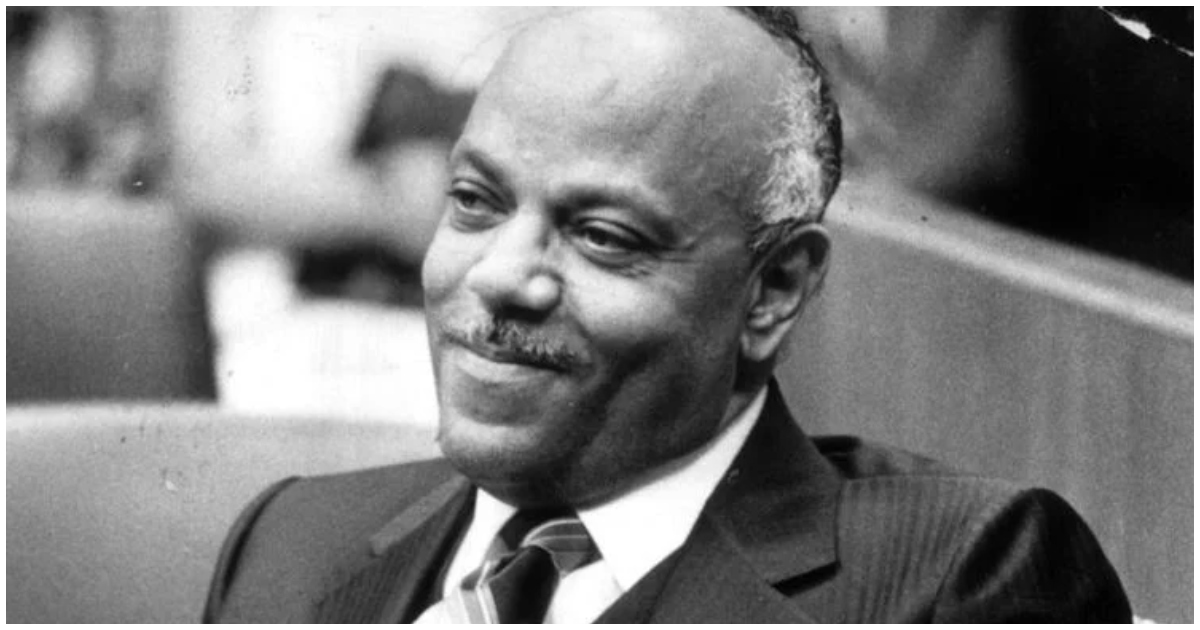St. Louis city leaders are rallying behind a proposal to honor Judge Clyde S. Cahill, a trailblazing legal figure. They want to rename the Civil Courts building after him. This building sits at the corner of Tucker Boulevard and Market Street.
A Lifetime of Breaking Barriers in St. Louis Law
Judge Clyde S. Cahill was a pioneer in St. Louis’ legal community. He became the region’s first Black federal judge in 1980. Throughout his career, Cahill fought tirelessly for civil rights and justice reform.
St. Louis Circuit Judge David C. Mason, who’s leading this effort, praised Cahill’s impact. “This man is a hero in this town,” Mason declared. Cahill’s legacy includes fighting school segregation and exposing unfair sentencing guidelines.
From Valedictorian to Courtroom Champion
- Born in 1923 in St. Louis
- Graduated as valedictorian from Vashon High School
- Accepted to Harvard but couldn’t afford to attend
- Joined the Army and flew planes
- Graduated from St. Louis University’s law school in 1951
- Worked in private practice and as a prosecutor
- Became a city circuit judge in 1975
- Nominated as U.S. District Judge by President Jimmy Carter in 1980
Cahill’s journey to the federal bench was marked by determination. After serving in the Army, he returned to St. Louis. He graduated from St. Louis University’s law school in 1951.
His legal career was diverse. Cahill worked as a prosecutor and in private practice. He also served as a legal adviser to the NAACP. In these roles, he consistently fought for civil rights and equality.
Challenging Injustice from the Bench
As a judge, Cahill wasn’t afraid to make waves. He often went out of his way to help jurors understand their role. This sometimes led to his decisions being overturned. But Cahill remained committed to fairness.
In 1994, Cahill made a bold move. He ruled that federal sentencing guidelines for crack cocaine were unconstitutional. He argued these laws unfairly targeted Black people. Though overturned, this decision sparked important conversations about racial bias in sentencing.
A Legacy of Freedom and Hope
Randall Cahill, the judge’s son, spoke about his father’s impact. He told an aldermanic committee that his father was remembered as a “champion of freedom.” Cahill always looked at life with optimism, seeing the glass as “half-full.”
For Judge Mason, renaming the Civil Courts building is about more than honoring Cahill. It’s part of a larger effort to address historical injustices. This includes recognizing the “Freedom Suits” filed by enslaved people seeking freedom in St. Louis courts.
Next Steps for the Renaming Proposal
The push to rename the building after Cahill has gained momentum. An aldermanic committee has advanced the proposal. However, it still needs approval from the full Board of Aldermen.
If approved, this change would be a significant recognition of Cahill’s contributions. As Judge Mason put it, “It’s great for St. Louis to say a person like (Cahill) is going to be honored on one of our most prominent historic buildings.”





